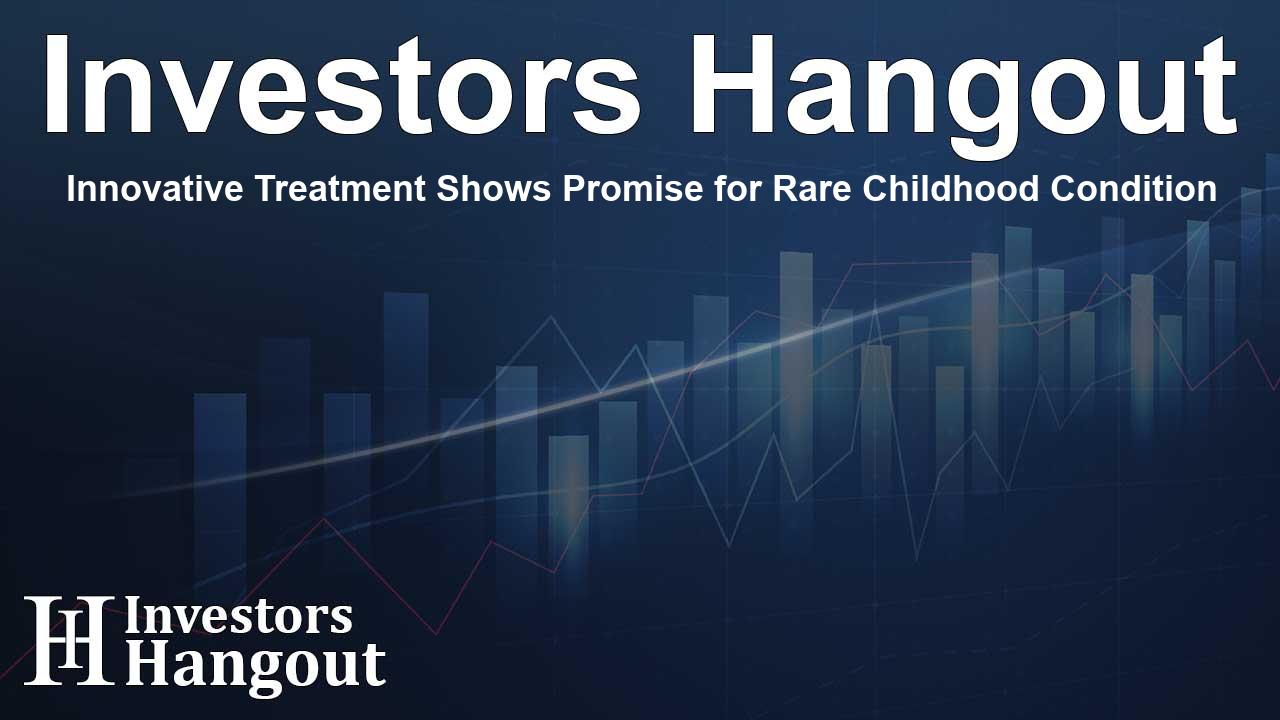Innovative Treatment Shows Promise for Rare Childhood Condition

Innovative Treatment Shows Promise for Rare Childhood Condition
Recent advancements in the medical field have shed light on a groundbreaking experimental treatment for a rare and often fatal childhood disease. This development is particularly significant given the previously limited options available for children suffering from conditions related to mitochondrial dysfunctions.
In a remarkable case, an 8-year-old boy, who had been actively participating in sports, suddenly faced a life-altering decline due to a rare disease. The initial signs were alarming; within a few months, he transitioned from running to requiring a wheelchair due to worsening paralysis. His condition was related to a mitochondrial disease known as HPDL deficiency, which affects the body's ability to produce Coenzyme Q10 (CoQ10), an essential component for energy production in cells.
The treatment that offered this child new hope came about after a study revealed the potential of an experimental compound to partially reverse symptoms related to this deficiency. The collaborative efforts of neurologists, researchers, and the compassionate involvement of the child’s family culminated in a treatment plan that included administering a precursor compound, 4-hydroxybenzoate (4-HB), which helped restore some function.
The Science Behind CoQ10 Deficiency
CoQ10 is vital for the body's energy production, and its deficiency can lead to severe neurological symptoms. The discovery that smaller, more manageable precursors to CoQ10 could produce beneficial outcomes is a game-changer in the field of mitochondrial research. Researchers at NYU Langone Health, where the study was published, showcased how these precursors are processed by the cells to synthesize CoQ10, thus revitalizing the energy production pathways that had been impaired.
In lab studies, it was shown that mice lacking HPDL function responded favorably to the introduction of 4-HB, enabling many of them to move and thrive rather than succumbing to debilitating paralysis. The fact that this research crossed the boundaries of laboratory testing to real-world clinical application marks a significant achievement in medical science.
Translating Research into Treatment
The child’s treatment began with careful approval processes that involved both ethical oversight and collaboration among various medical professionals. Neurologists communicated with researchers to verify the treatment’s potential benefits, resulting in an authorized course of action to use 4-HB as part of his care. Within weeks, significant improvements were noted; the child began to regain mobility, showcasing the effectiveness of this novel approach.
The implications of such a treatment extend beyond individual cases. The findings suggest a window of opportunity during which younger patients might benefit most from similar interventions. Further research is planned to explore the optimal timing and dosage to maximize recovery outcomes in children affected by HPDL deficiency and related disorders.
The Broader Impact of CoQ10 Research
This innovative treatment fosters hope for families facing rare diseases, reminding us of the critical importance of research in creating effective therapies. Beyond children with HPDL deficiency, studies indicate that CoQ10 levels decline in various adult conditions such as heart disease, diabetes, and Alzheimer's, implying that broader applications of this research could benefit a wide demographic.
Experts believe that as the understanding of CoQ10's role in energy production deepens, the market for related health supplements is set to expand significantly. Researchers estimate that this segment could evolve into a multi-billion dollar industry within the next decade, providing accessible solutions to various conditions linked to CoQ10 deficiency.
Future Directions in Mitochondrial Disease Research
Looking ahead, researchers agree that identifying the most effective treatment protocols for Mitochondrial disease is imperative. Questions remain about the long-term implications of early intervention with CoQ10 precursors and their eventual impact on quality of life as patients age. Investigations will continue to discover the intricate balance needed for effective treatment.
As the NYU Langone team works on licensing this new treatment method, the focus remains on ensuring that breakthroughs in mitochondrial dysfunction lead not merely to theoretical knowledge but to practical, life-altering therapies for patients in critical need.
Frequently Asked Questions
What is HPDL deficiency?
HPDL deficiency is a rare metabolic disorder that impairs the body's ability to produce Coenzyme Q10, leading to severe neurological issues.
How does the experimental treatment work?
The treatment uses compounds like 4-hydroxybenzoate to stimulate the natural production of CoQ10, helping restore cellular energy and improve symptoms.
What were the results of the treatment in the child?
The child demonstrated significant improvements in mobility and endurance, regaining the ability to walk long distances after treatment.
Are there other potential benefits of CoQ10 research?
Yes, ongoing research may lead to applications for various diseases, including heart disease and neurodegenerative disorders.
What is the next step for this research?
Further studies will be focused on understanding the optimal timing and dosage for treating mitochondrial diseases to achieve the best outcomes for patients.
About The Author
Contact Hannah Lewis privately here. Or send an email with ATTN: Hannah Lewis as the subject to contact@investorshangout.com.
About Investors Hangout
Investors Hangout is a leading online stock forum for financial discussion and learning, offering a wide range of free tools and resources. It draws in traders of all levels, who exchange market knowledge, investigate trading tactics, and keep an eye on industry developments in real time. Featuring financial articles, stock message boards, quotes, charts, company profiles, and live news updates. Through cooperative learning and a wealth of informational resources, it helps users from novices creating their first portfolios to experts honing their techniques. Join Investors Hangout today: https://investorshangout.com/
The content of this article is based on factual, publicly available information and does not represent legal, financial, or investment advice. Investors Hangout does not offer financial advice, and the author is not a licensed financial advisor. Consult a qualified advisor before making any financial or investment decisions based on this article. This article should not be considered advice to purchase, sell, or hold any securities or other investments. If any of the material provided here is inaccurate, please contact us for corrections.
